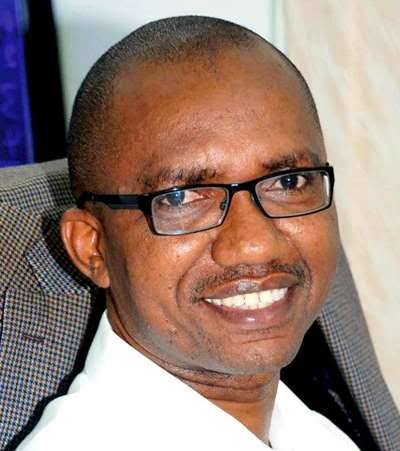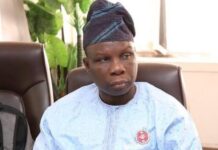ECOWAS: Is this the beginning of the end?, by Azu Ishiekwene
Mali and Burkina Faso obviously have a lot more in common than squaring off in a game of football like they just did in the Round of 16 knockout stage of the African Nations Cup (AFCON), in Cote d’Ivoire.
Along with Niger, these countries have been a great source of misery for the continent in the last four years, with rogue military leaders there playing a game far more deadly with the lives of their countries than anything football can ever hope to imitate.
They announced to the continent’s shock and surprise last week, that they were pulling out of the 15-member regional trading block, the Economic Community of West African States (ECOWAS).
There are rules for entry and exit. But the military governments that seized power in these countries are invoking the name of citizens whose mandate they trampled upon in the first place, to break the rules. They don’t care.
Mali, Burkina Faso and Niger are neighbours with artificial borders created for the convenience of the colonial powers. They occupy nearly half of West Africa’s landmass. They are also landlocked and among the poorest countries by many global indexes. They have other sociological similarities besides.
READ ALSO: Miyetti Allah vigilante mocks elite hypocrisy, by Azu Ishiekwene
Burkina Faso has a GDP per capita of $1,510 (2020); Mali, $2,640 (2023); and Niger, ranked by worldatlas.com as the second poorest country in Africa, has a GDP of $1,410 (2020).
With their humongous acreage straddling the Sahara Desert and its southern fringes, these countries manage an estimated 72 million population combined. As though in agreement, the three have had a checkered history of military coups and are currently under military rule against the prevailing tide of multiparty democracy: Mali since 2021; Burkina Faso in 2022; and Niger, 2023.
Alliance of delinquents
The trio are members of a new “Alliance of Sahel States”, a mutual defence pact they entered into in September 2023. Like delinquents plotting to evade the consequence of mischief, they formed this alliance to ward off possible military invasion by the regional intervention force following the coup in Niger.
Their latest bluff to quit ECOWAS has elevated their plight to Siamese status. Trapped as they are in the Sahel, they may now need lifesaving surgery should ECOWAS decide to squeeze in a bit more than sanctions.
Who will bell the cat? The region is a different place today than it was in the mid-1990s when the Commonwealth punished Nigeria for the bad behaviour of the military government of General Sani Abacha that executed Ken Saro-Wiwa in defiance of global appeals. Or even under the more recent example of The Gambia’s Yahaya Jammeh who was forced to back down in 2017, after Nigeria rallied regional leaders to chase him out of office.
Root of the matter
At least three events have shaped the intransigence of the so-called “Alliance of Sahel States.” The first is the significant infiltration of the region by ISIS and ISWAP elements after the US-led military action in Iraq, Syria and Afghanistan and the killing of Muammar Ghaddafi in Libya.
Arms from Syria, Iraq and Libya have flooded the Sahel, destablising the region and emboldening insurgency. Mali and Niger in particular have never quite overcome the impact of that destabilisation. Even countries farther South, like Nigeria, are still grappling with the fallout of the proliferation of light weapons, mostly through the Sahel.
The complicity of France is the second reason. It’s not just complicity in the sense of meddling, which most states do routinely. It’s the more egregious kind – pregnant complicity that straps a child on its back.
A number of Francophone countries in West and Central Africa, at least 14 of them, that are part of the rigged CFA franc zone still maintain 50 per cent of their reserves in the French treasury in Paris. Also, the profit of French state-owned atomic energy group and uranium monopoly, Areva, based in Niger, is twice the GDP of that country.
The story of ruthless exploitation, often in connivance with the elite, is pretty much the same in Mali, Burkina Faso, Niger and other Francophone countries. Citizens have, of course, borne the brunt and the political elite who are complicit and have used the exploitation as excuse for coups and counter-coups.
The third reason for the stubbornness of the military regimes in Mali, Burkina Faso and Niger is the expansionist ambitions of China, but more importantly, Russia, under its current President Vladimir Putin. In other to spite the West, especially since the war in Ukraine, Putin sets up a play station wherever the enemies of the West can be found, with the deadly private army, Wagner Group, as his avatar.
The Russian president has made no pretence of his support for the rogue military governments in Mali, Burkina Faso and Niger. Apart from military and strategic support, he has also offered free grains to six African countries, including Mali and Burkina Faso, to hedge supply shortfalls caused by the war with Ukraine. The new military leaders in these countries believe that trading off membership of ECOWAS for the Trojan horses of Beijing and Moscow is a better bargain.
How far is too far?
But how far can they go? As far as they believe they can continue to exploit the obvious indecision of regional leaders, the most distracted of which is Nigeria. The last time a member country – Mauritania – left (although for different reasons), the regional group ECOWAS was in a much stronger, more united place.
It’s now a shambles of its old self. Members already weakened by internal crisis and political wranglings are not sure whether to use force or not even though they can see clearly that negotiations are heading nowhere.
Unfortunately, Nigeria, the regional powerhouse which should have provided leadership as it did in the past in Sao Tome, Benin, Liberia, Sierra Leone and Cote d’Ivoire, is facing its own Gulliver moment. It has been pinned to the ground by a string of Lilliputian problems ranging from internal insecurity to the relatively new and fragile mandate of its president and ECOWAS leader Bola Ahmed Tinubu, who faces the unpleasant task of being the leader on whose watch the community could fall apart.
Other ECOWAS countries beset by serious economic and political problems, including flawed elections which have also significantly limited the legitimacy of many current civilian leaders, are not faring better. Yet, even in the best of times, Nigeria picks about 70 percent of the community’s bills.
The rogue military leaders in Mali, Burkina Faso and Niger know that the community is in a difficult place, compounded by the decline in the influence of France, elections this year in the US and the UK, and the wars in Europe and the Middle East. They will milk these distractions.
They are betting big on Russian support and also stirring up nationalistic fervour among the local populations. It remains to be seen, however, if rhetoric will prevail over geography. Being landlocked is problematic and is a major reason 16 out of 31 landlocked developing countries, including Mali, Burkina Faso and Niger, are among the world’s poorest.
Catch-22
For ECOWAS it is a catch-22 situation. While it is hoping that existing sanctions on the rogue governments, which range from the freezing of assets to the suspension of trade and the cut off of electricity supply would force the leaders to negotiate more sensibly and prevent a further contagion of coups, the community is also mindful that informal cross-border trade, largely in food, make up about 30 percent of regional trade.
To kill the precariously perched tsetse fly without hurting its own scrotum, ECOWAS needs to strengthen citizens’ voices in these countries. It needs to cut through the posturing and partisan noise and engage citizens through more trusted, independent channels. The community could also use the experience of eminent persons, led by former Presidents Olusegun Obasanjo and Thabo Mbeki, and possibly joined by George Uppong Weah, to reset negotiations.
The longer the process takes the greater the risk of normalisation – and even worse, the danger of contagion.
Ishiekwene is Editor-in-Chief of LEADERSHIP
Follow the Neptune Prime channel on WhatsApp:
Do you have breaking news, interview request, opinion, suggestion, or want your event covered? Email us at neptuneprime2233@gmail.com





